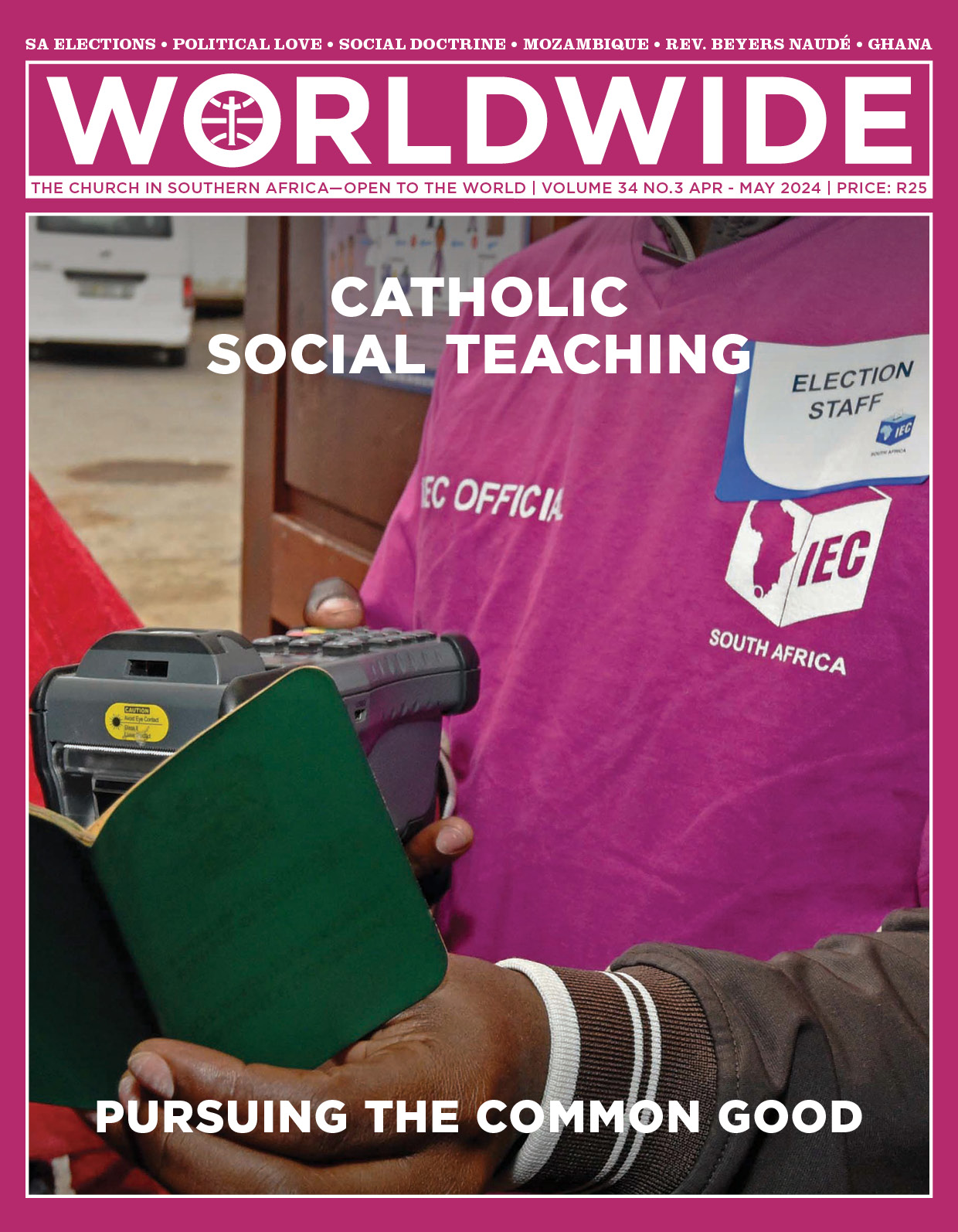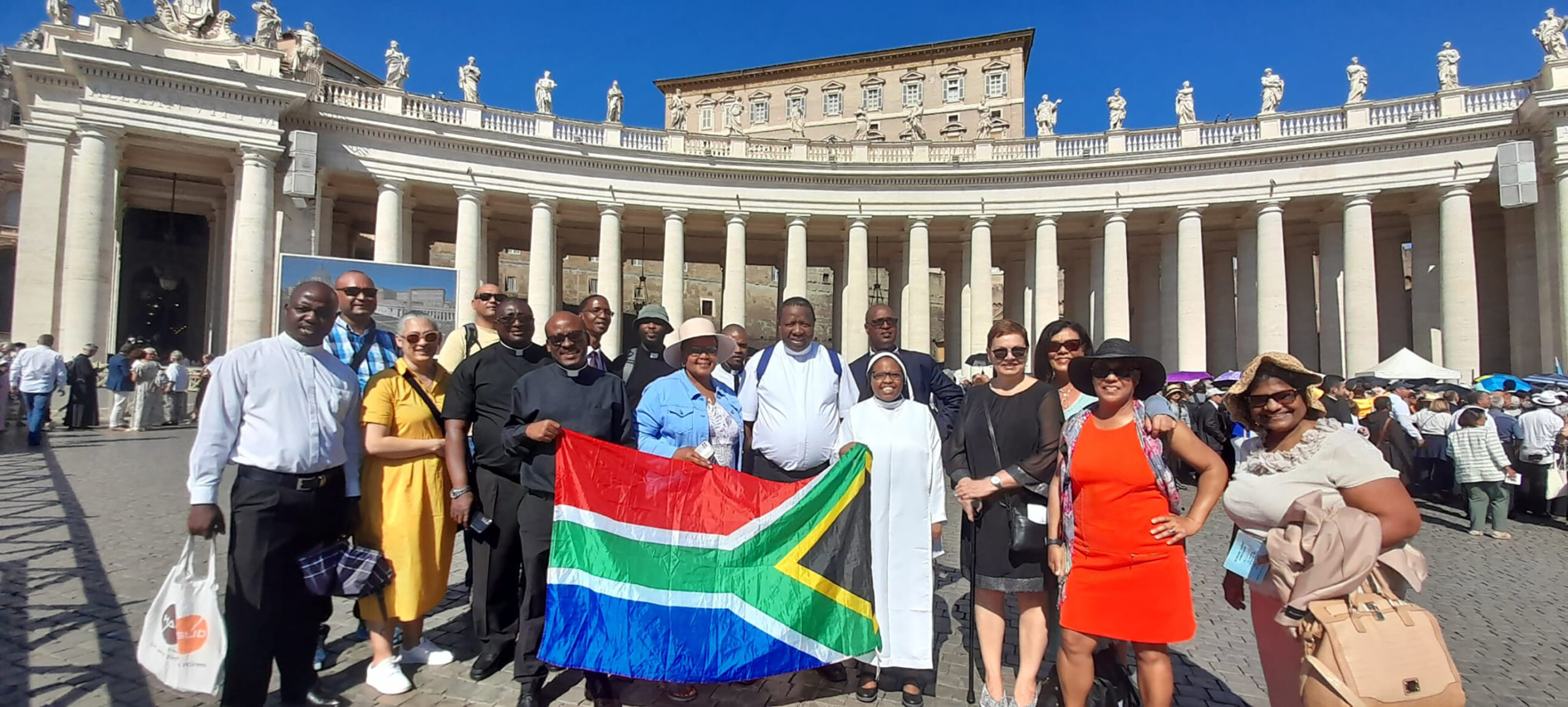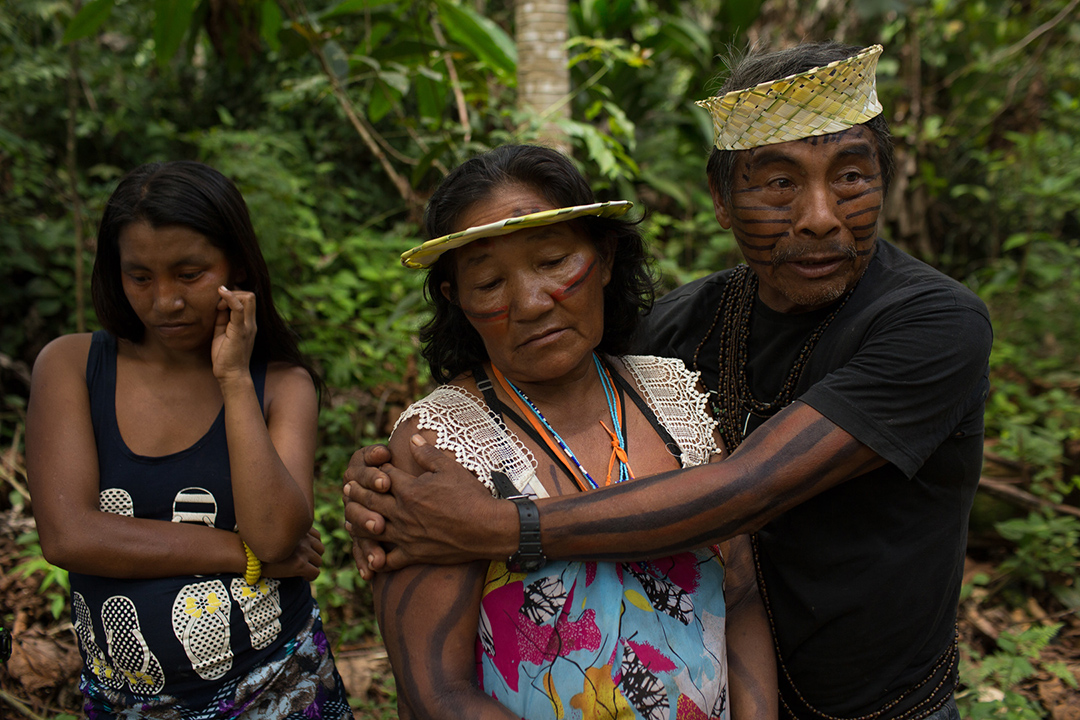
CATHOLIC SOCIAL TEACHING, PURSUING THE COMMON GOOD
It is the honourable responsibility of Christians to contribute by means of active participation to building a society where the common good is fundamental. As Pope Benedict XVI affirmed: “There is a need for authentically Christian politicians but, even more so, for lay faithful who witness to Christ and the Gospel in the civil and political community.” (Address to the 24th Plenary Session of the Pontifical Council for the Laity).
REFLECTIONS • 2024 SA ELECTIONS

A LOOK FROM THE DIASPORA
In this column Fr Kgomotso Sebopela shares his impressions and thoughts on the upcoming elections in South Africa
BY FR KGOMOTSO R. SEBOPELA MCCJ | ROME
Some Stats
In South Africa’s first democratic elections, 19 political parties contested for seats in the National Assembly. Now, thirty years later, at least 350 parties will do it for the same seats. Since 1994 we have been voting with two ballot papers but, in the upcoming elections, we will use three, including one with independent candidates. The current governing party has been winning elections with an outright majority; however, since the recall of former president Thabo Mbeki in November 2008 and the birth of the EFF, the ANC has seen a sharp decline in its support. The state capture saga which labelled former President Jacob Zuma as the most corrupt of all ANC presidents, made matters worse resulting in the EFF gaining momentum. The South African political spectrum of today is marred by political leaders who are corrupt. Those who are leading the country lack credibility and accountability. This has led to ailing infrastructure, lack of service delivery, high rate of unemployment, illegal mining, decline in economy, high crime and murder statistics, uncontrolled border posts etc. Eskom, the main electrical power supplier in the country is at the verge of collapse and there is no plan to sustain it. All these issues have become a major concern for organizations including the South African Catholic Bishops Conference (SACBC).
SACBC on elections
The SACBC has expressed its worry over the neglected state of the country which badly affects the poor. On 8 November 2022, the SACBC, along with other civil society organizations, signed a declaration to defend justice and democracy in South Africa (sacbc.org.za). In December 2023 it issued a Voter Education Manual in which it highlighted the Catholic Social Teachings concerning democracy and voting rights and the 2024 Election Prayer. These and other letters are available on their website, including its pastoral letter appealing to South Africans to vote for a better future. Despite all these efforts, it seems as though the bishops’ words do not reach the general public at ground level.
South Africans in diaspora
We, as South Africans residing in Rome, have met on a few occasions to discuss the political and social situation of the country. Few believe that these coming elections will bring any change and there is no clarity as to whom we should vote for. Matters affecting the economy and the lives of the poor attract more attention. The right to vote is enshrined in our Constitution and encouraged by the Church’s Social Teachings. We keep on reminding ourselves, guided by Gaudium et Spes n. 76, that voting is our civic duty, but this voting should be motivated by our Christian conscience. Politicians have made great promises, but they have delivered little or nothing; thus, choosing becomes a challenge.
Political parties and the voters
Some political parties trust that their followers will continue voting for them as they did in the past; however, many voters have lost trust in their politicians. Nevertheless, some voters, despite knowing that politicians are lying to them, will still vote in their favor. Others believe that they must remain faithful to the party of their ancestors, or they believe that should the governing party lose power, apartheid will be reinstated and that many will lose their monthly grants. These are some of the reasons given by voters who remain supportive of the governing party.
However, reflection from outside shows that most people merely follow blindly. The launching of party manifestos often results in a circus of singing and dancing with people hardly listening to the content of the manifestos. Thus, voting often is done out of fear and ignorance. However, the likelihood of a coalition government gives us a reason to be hopeful. In certain municipalities coalitions are working effectively. Conscious South Africans believe that, for the first time in history, the system will be tested to the core because of the incoming independent candidates and the small parties which have mushroomed in the last five years and are gaining not only momentum but the trust of people.
Let us read the SACBC letter (adct.org.za) before venturing out to vote. As it states: “(A) voter should consider what is important for the whole nation, not just what is good for you personally, your political party, and its alliance partners.” Therefore, vote according to your Christian conscience.

